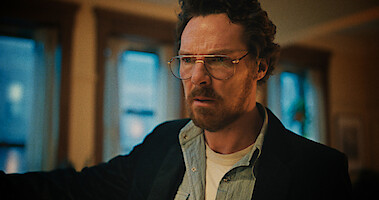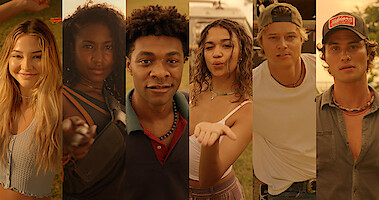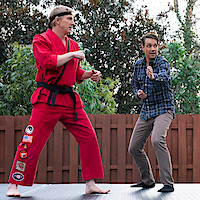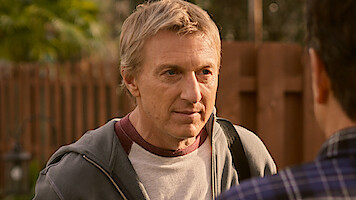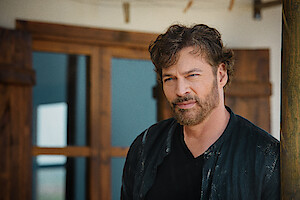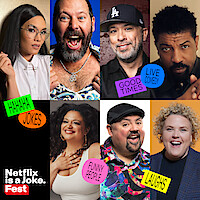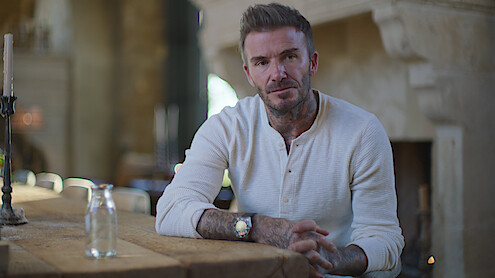
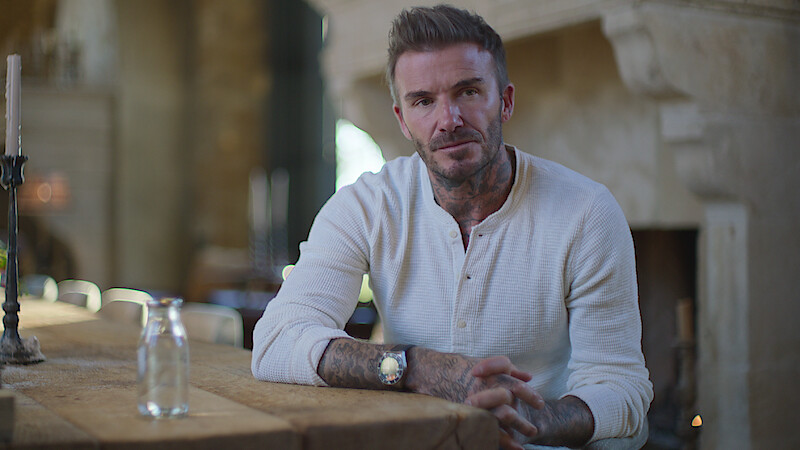




BECKHAM traces David Beckham’s rise from his humble beginnings in east London to international sports superstar. The new docuseries from filmmaker Fisher Stevens examines the highs and lows of the athlete’s life through conversations with those closest to him. The remarkable story offers a new, and often surprising perspective on one of the most recognizable and scrutinized athletes of all time.
On Skip Intro, a weekly podcast about the exceptional people behind your favorite shows, films, specials, and documentaries on Netflix, host Krista Smith puts Beckham and Stevens in conversation to find out what went into the making of this exceptional docuseries. Listen to the audio below on Spotify, listen here on Apple Podcasts, or read the episode transcript below.
Krista Smith: When you hear the name “David Beckham” a clear image comes to mind –– the movie star good looks, the celebrity marriage, the elite athlete with that famous magic foot –– no one can bend it like Beckham. Depending on when you were born, there are many David Beckhams. But now, the public persona has given way to a new, unvarnished version of the person behind the businessman, fashion icon, and world class soccer player –– (or football player, depending on what side of the pond you’re listening from).
BECKHAM is a new docuseries on Netflix that traces David’s rise from his humble beginnings in east London to international sports superstar. He’s played for the very best teams: 11 years for Manchester United, then on to Real Madrid, LA Galaxy, AC Milan, and Paris St.-Germain. He is the founder and owner of Inter Miami CF –– you can’t miss the team with their pink jerseys and the recently acquired Lionel Messi. He is also one half of one of the most enduring celebrity marriages. His wife, Victoria Beckham, is known around the world for her fashion brand and years as Posh Spice of the pop sensation Spice Girls. Together, they’ve raised four children and built a life across continents and professions. Today, we’ll be taking a look behind the scenes of BECKHAM to find out what went into the making of this exceptional docuseries.
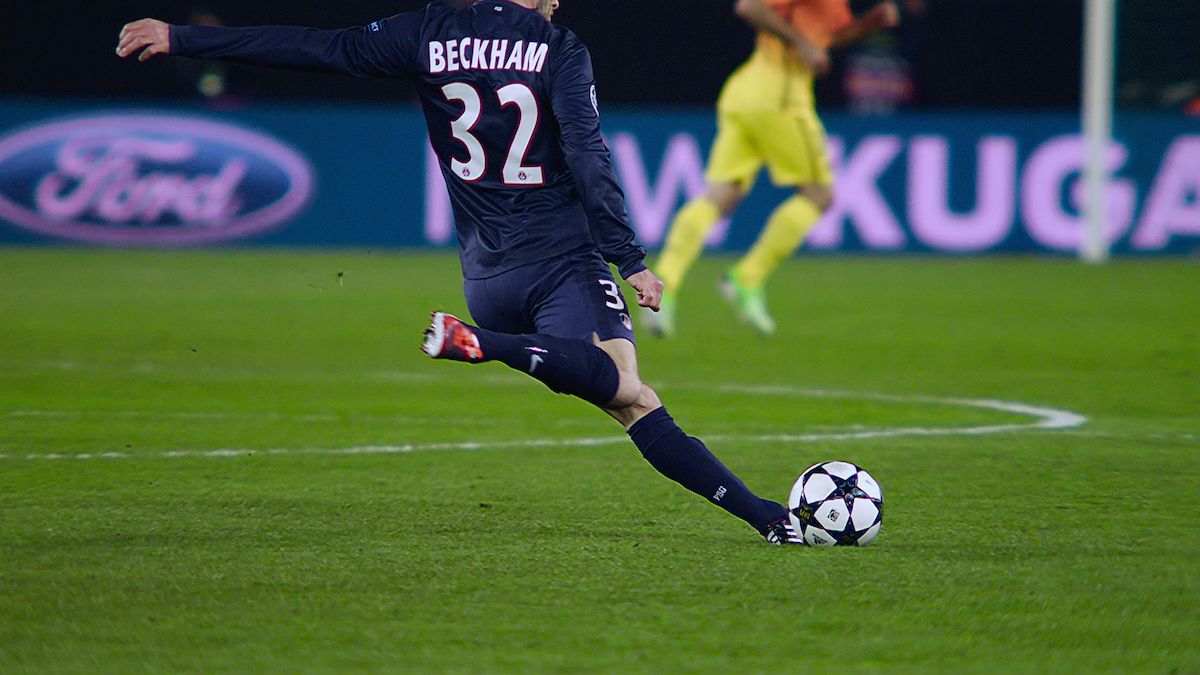
David Beckham: To be honest, I was always planning at some point to make a life doc, and this year is the 10-year anniversary of when I retired. So, I knew that I wanted to kind of do it around this time. It was just whether it was the right time, and if I could make it happen. I just felt that, at some point, people kept on turning around to me and saying, “It’s an interesting story to tell, you have to tell it at some point,” because it’s not just about, you know, my football career, but it’s about my family, it’s about being married to a Spice Girl, and my journey.
This is such a personal thing to me, and when I sat down with my team and said, “OK, this is what we’re going to do, and this is how we’re going to do it,” it was really important that we got the right director. And I met some amazing directors and talked to some amazing people that wanted to be part of this and wanted to do it and tell the story in their way, but nothing ever felt right. So I kept on looking and asking people, and I’ve got a couple of people and close friends that are in the movie business, in the documentary world, and one of my closest friends turned around to me and said, “Fisher Stevens, that’s the guy.”
Smith: For those who aren’t aware, Fisher Stevens is an acclaimed documentary filmmaker and actor who recently played Hugo on Succession. Within the documentary space, he’s well known for putting environmental conservation at the forefront of his work, including films like Mission Blue, Before the Flood (which Leonardo DiCaprio co-produced), and The Cove (which won Best Documentary Feature at the 2010 Oscars). When Fisher was first approached about the four-part docuseries on David Beckham, he was unsure about taking on the role of director. But his love of football –– and ironically, his love for Liverpool F.C. (Manchester United’s oldest and biggest rival) –– convinced him to do some independent research on David.
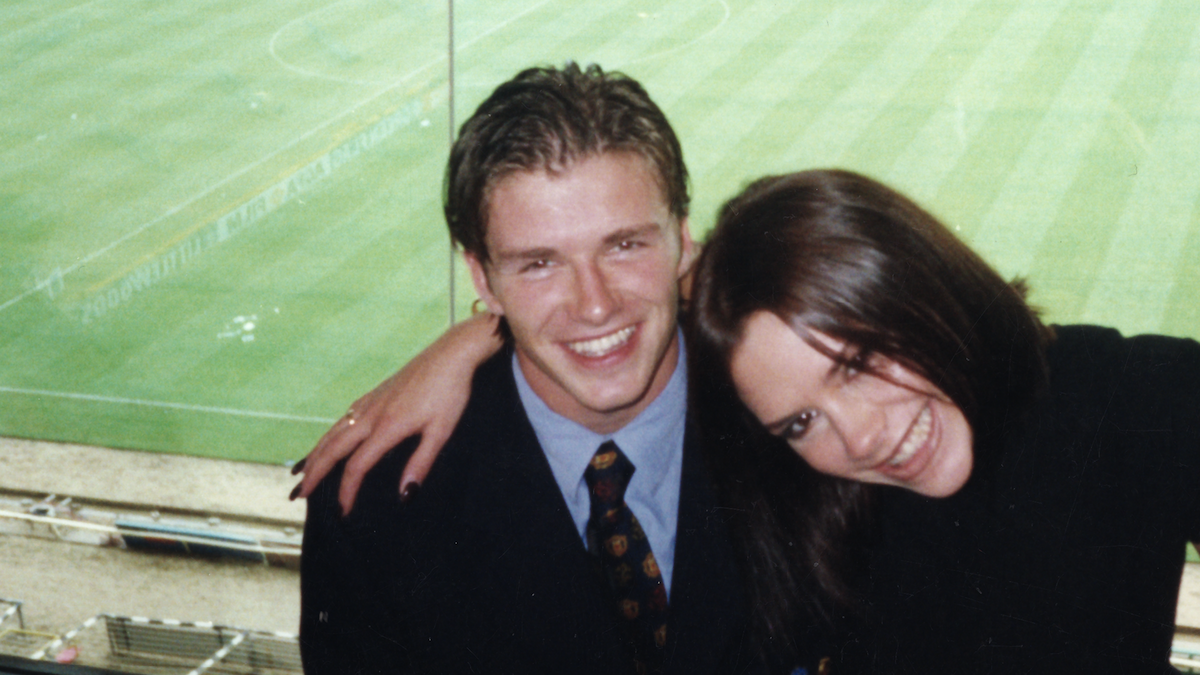
Fisher Stevens: Ironically, I was shooting Succession when I got the call and the writer/creator Jesse Armstrong and the executive producer Tony Roche and I... they’re British, we talk football all day. I went up to them, I said –– I get this call from Beckham’s people actually through Leonardo DiCaprio’s people, because Leo’s recommended me in some weird roundabout way –– and I’m like, “I shouldn’t do it, right guys?” And they’re like, “What? You have to do it. David Beckham was a brilliant football player, his life is incredible, you have to look into it.” And then Tony sent me a YouTube clip, and then I just started digging in and sure enough I was like, “This guy was not what I thought at all.” Watching him play was really the convincing, because I didn’t know. I’m like, “Well, if I don’t know, none of my friends know how great he was.” We had no idea, so... the other thing that happened was: Before we committed to each other, we thought, “Let’s meet.” So I had dinner with him and Victoria and Dave Gardner and Nicola Howson who work with him and I just, I just knew.
Beckham: The moment I met Fisher, I knew that he could tell my story in possibly a way that had never been told in that way before. He was coming from a different perspective of my life. It turned out that he is a football fan, even though he is a Liverpool fan, which isn’t great, obviously, but he is a football fan. So he could tell my story in a different way, and that’s what I wanted.
Stevens: We just clicked. David was wonderful, Victoria was hilarious, really funny. I said, “OK, this is going to be good and it’s going to be funny,” because Victoria was so funny when I met her. I just got excited. I didn’t really judge him because I didn’t come in with any baggage, which might be another reason he hired me. So I think he felt he could tell me his story and it’s more fresh because, yeah, I could read stuff but I’m reading it 20 years, 30 years later, not in the moment. I literally had no recollection of that. So I think he liked that. He’s a really generous person and if he says he’s going to do something, he does it. And I think he knew that this couldn’t be brand Beckham and I made that very clear. He wanted to tell his story, but he didn’t always know how to express himself. So I had to help him at times. He was exhausted after some of those interviews. Exhausted, because he was reliving mental things that he’s pushed aside for so many years.
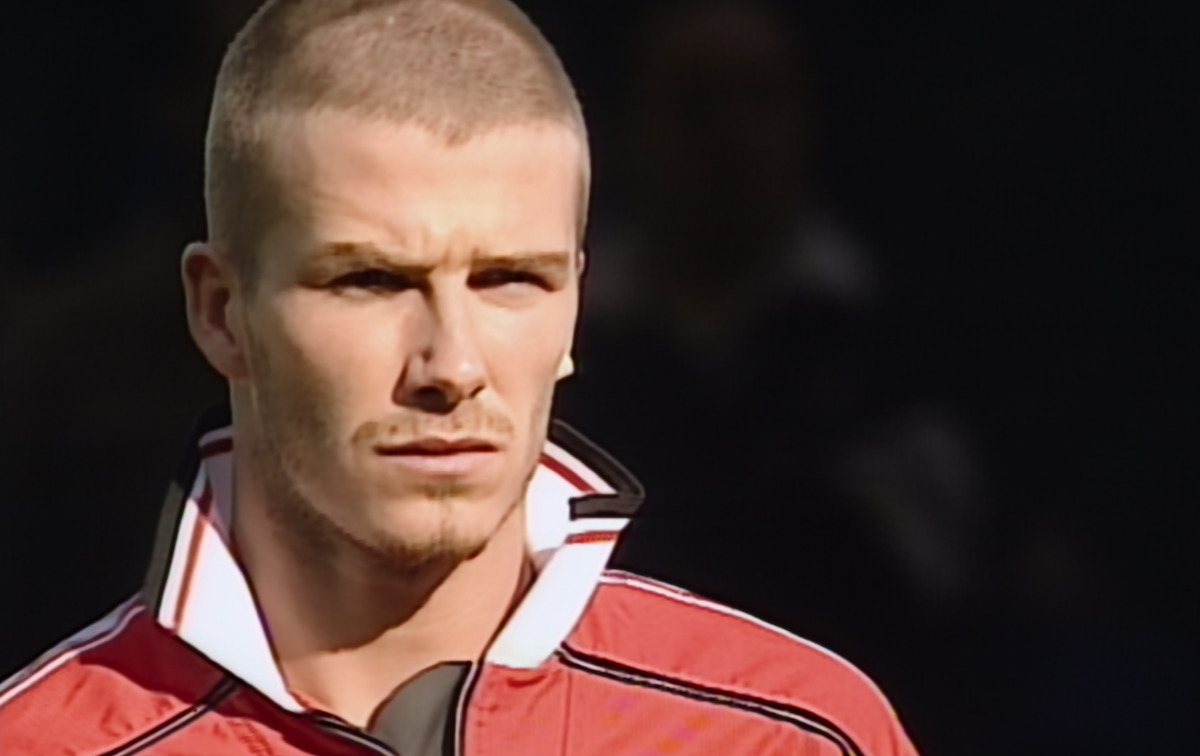
Beckham: I’ve tried to live my life in a way where I don’t have regrets. Yes, I made mistakes. Everybody knows about the mistakes that I’ve made. You know, in ’98, I get the red card. Do I wish that it’d never happened? Absolutely. Do I know now why it happened? Absolutely. It happened for a reason: to make me stronger as a player, to make me stronger as a person, maybe to have a better and more successful career.
Stevens: He’s got one of the most strong constitutions of any human being ever. I mean, you know, between that and what he went through in Madrid with the people just coming at him... there’s this scene with him driving his little son through the crowds, that was his life. And David, he talks about the red card, has talked about it in interviews, but we really wanted him to really relive some of that time and how difficult it was.
Beckham: It wasn’t until I watched a lot of the footage around that time and after that time that I realized how bad it was. I knew it wasn’t great at the time, but I just kind of carried on playing football. I was in the Manchester United and Sir Alex Ferguson bubble, and I never really got affected by it, but deep inside I was hurting in many different ways. I’m glad these days that young kids, footballers, people in life feel that they can talk to people, and feel that it’s OK to say that, “I’m not OK. But, you know, 25 years ago, 20 years ago, when that happened to me, I can’t remember anyone saying, “Are you OK? Yeah, but are you really OK?” Because if I’d have turned around to my dad at the time and said, “Dad, I just don’t feel great, I feel...” He’d have said, “Boy, just get on with it. Work harder, work harder. Just forget it.” Talking about it over the last 17 months for me was really difficult. That was probably one of the most difficult parts of this, just because I saw how bad it was, and I answered to Fisher exactly how I just answered to you. How did I get through it? I don’t know.
Stevens: And the red card was the beginning. And you know, we show you over the course of four episodes the obstacles he’s constantly up against.
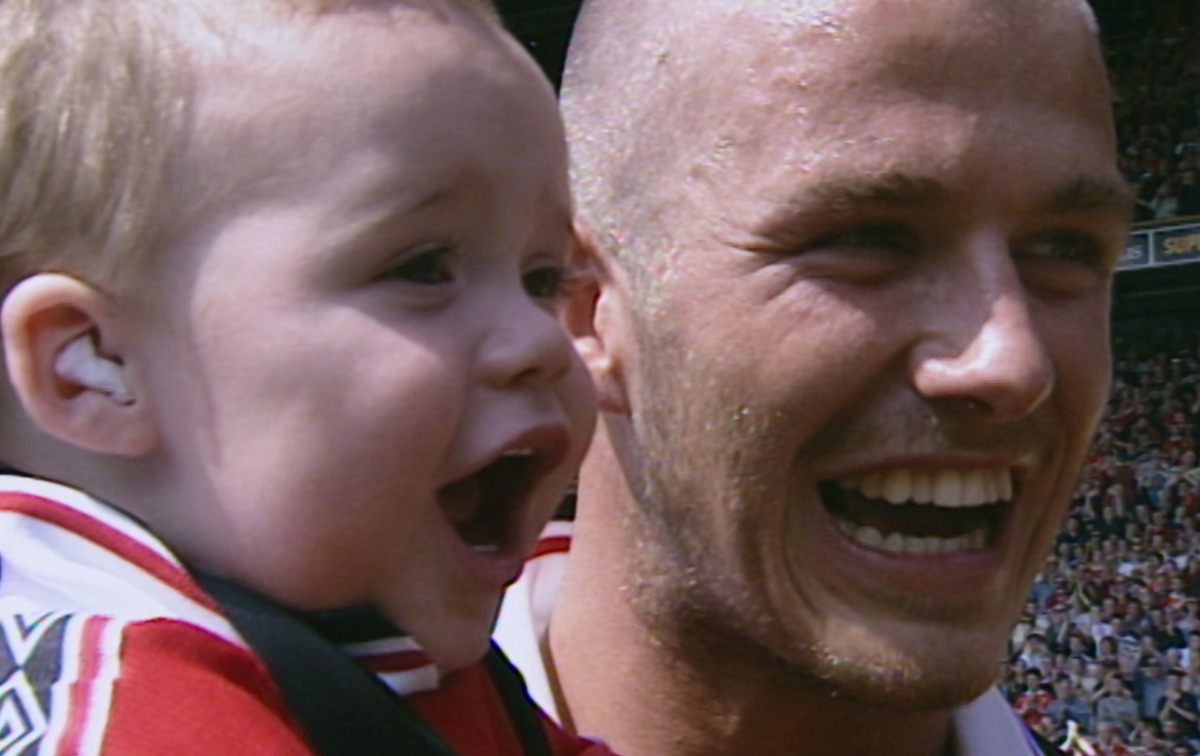
Beckham: It was like an emotional roller coaster. Looking at the good things, the bad things, the things that I’ve done over my career and my life, looking at my family stuff, some things that I’d never even seen before, which was just unbelievable. To be honest, there’s a lot of stuff that I’ve not even thought about for the last 30 years. I suppose that’s probably –– one of the reasons why I wanted to do this documentary is because I wanted to kind of look back, celebrate, cry, laugh, and have those emotions that I’ve had over the last couple of years. Because in this process, I’ve gone over every single moment, from the moment I was born till right up to now. So, there’s a lot of stuff that’s happened, and you don’t realize until you sit down and you look and go over exactly what’s happened and then people remind you of other things. I think that was the other tough part as well. I thought I saw a story in my head, how it happened, but then when I finished telling the story, someone off camera would be like, “Yeah, but that’s not really how it happened.”
Stevens: It wasn’t easy for him. I would say, you know, I felt like I was his therapist, so I had to be patient. He’d never been to therapy, he never really reflects. He’s not a reflective person. He’s always about the next moment. “I want Miami now, it’s all about Miami,” whatever. I had to slow him down. And the beauty of what he did was, he gave me a lot of time to do it. So I sat with him over 10 different periods over the year in almost two years. And I had to go back a few times, because I felt like, “David, we didn’t really get to the core or the essence of your hurt here,” or, “Can you retell me this story?” I also am an actor, so I am used to going there myself. So sometimes I would think, “OK, how do I get to this emotion? How would I get to it?” So I would press him like I was in a scene with him, like an acting partner, to get what I needed. Which is partially why I love documentaries as my other job, because I can go into a role as an actor sometimes, when I’m interviewing.
Smith: Beyond finding ways to help David open up and reflect on the scrutiny of their everyday life both on and off the pitch, production also required David and Victoria to open up their homes and private spaces in ways they’d never done before.
Beckham: He’s coming into parts of my life that I’ve (a) never talked about before, (b) never let anyone into our homes before. So if I was ever going to do it, this was the only time I was going to do it.
Stevens: I asked him early on, I was like, “Dude, what are your closets like?” And he said, “Oh,” and I snuck up and I looked and I asked, “Can I shoot you?” And he’s like, “No, I don’t want that.” And I begged him. And finally he’s like, “OK, OK, OK. If you want to.” You should see the house. His stuff is nuts. He literally prepped the week, like, for the clothes. We were filming in this one scene and I moved things around. I messed them up. This is at the beginning. And then I noticed him putting everything back in a weird way, really crazy the way he would place the couch back after we shot. And he did it himself. We turned some of the liquor bottles down in the man cave and then he noticed it and then he turned... so I’m like, “Jesus Christ.” So then we shot a scene a week, a month or so later in the kitchen, and I see him and he starts to... he’s cleaning shit up. I said to my crew, I said, “When we film him cooking, he’s going to clean.” And I said, “We got to get it.” And then David stopped and I said, “David, just go, we’re just going to film. Do what you do. It’s OK." And so he said, “OK.” And that’s what he does.
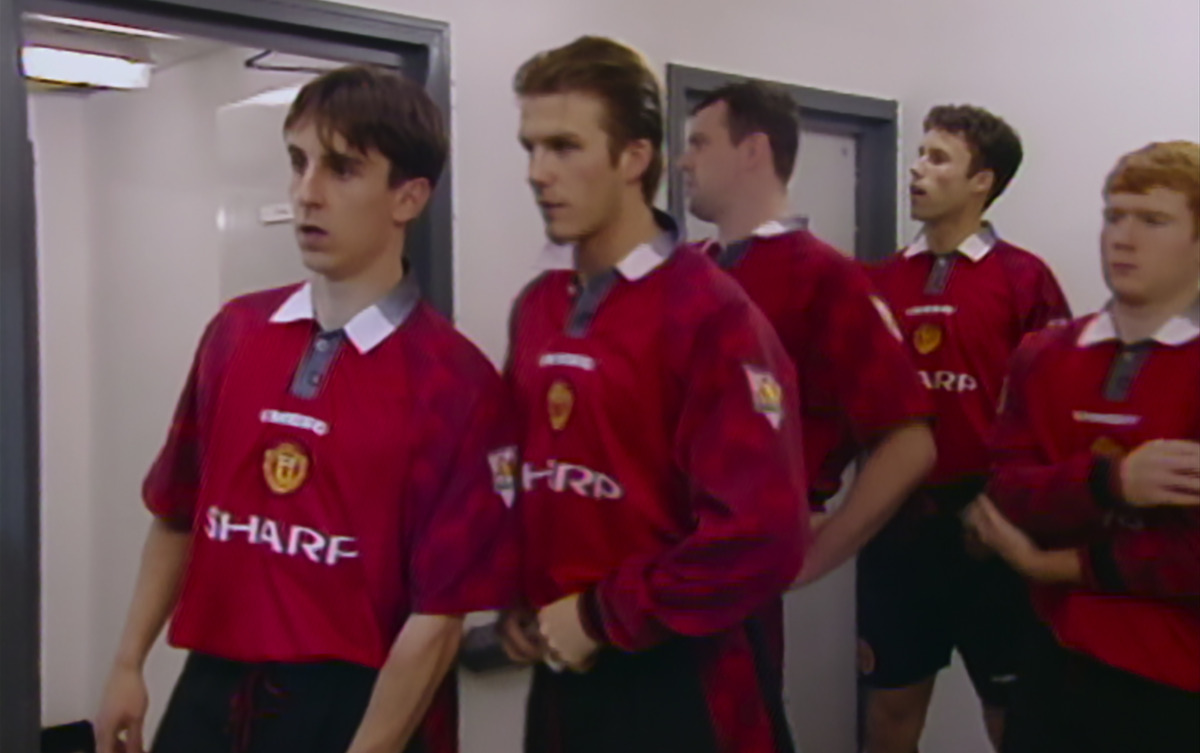
Stevens: He’s a madman. Everything he does is with purpose and he does it 100%. You know, that’s who he is. He’s a fascinating person. I was shocked by all this stuff.
Beckham: We’re a very private family. Obviously we are very public and people know us and we’re very obviously famous, I never like to use that word, but people probably don’t really know us really, in a way that we wanted to show in the doc. So, I had to give access. I wanted to give access to certain parts of my life and certain parts of my homes, and just an insight into, you know, what goes on every single day for me. You know I am a normal father and a normal husband, I take my kids to school, I make them dinner, I make them breakfast. So, in all of those things, people kind of feel that they get to see them, but they don’t really get to see them.
Smith: It’s undeniable that David’s life is far from ordinary. But at the same time, these domestic moments offer a glimpse behind the ironclad public persona we’re all familiar with. And while it’s fascinating to see David Beckham as an ordinary human living his life, it’s impossible not to recognize that this is also the person that endured years of excruciating public harassment as a young adult. How he managed to not only keep it together during that time, but also thrive is one of the components that I found the most compelling about him in this doc. As Fisher put it to me, “How did he not fall off a cliff?” And while this docuseries provides numerous explanations for his resilience, it’s clear to me that a key player behind his strength was Victoria Beckham.
Beckham: You know, I’ve been very lucky to have a loving family when I was growing up, and then obviously once I met Victoria and joined Manchester United, I had another family that loved me and that I could love. So these are the people that keep you sane.
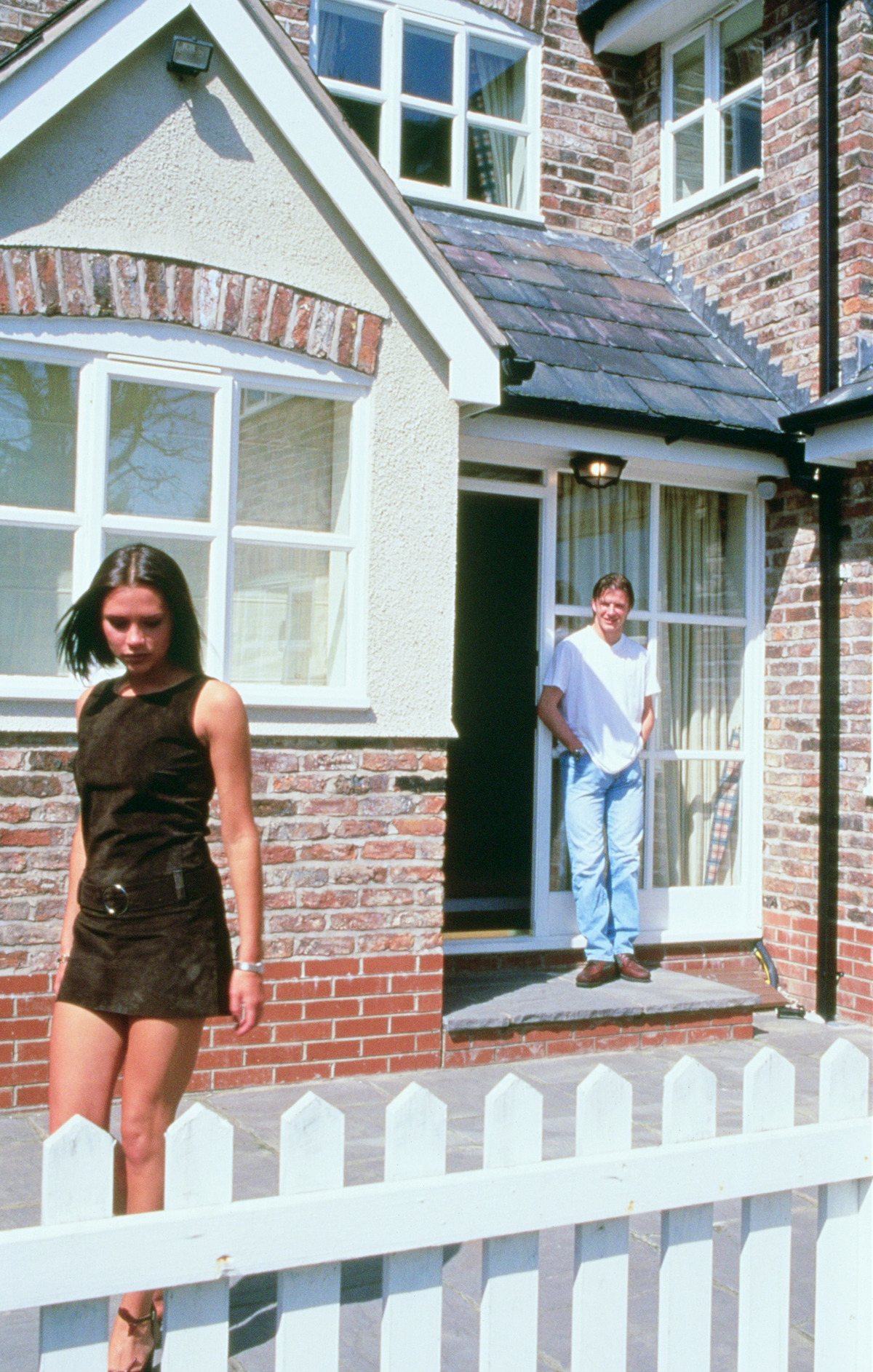
Beckham: I got to the end of the first two episodes, and me and Victoria looked at each other and we were like, firstly, “We were really cute when we first met.” And then secondly, we were like, “Oh my God, we are exhausted after watching our lives in the last 20 years.”
Smith: Leading up to their interview, Fisher wasn’t quite sure what to expect from Victoria, but as soon as they sat down together, it was obvious that hearing from her would be a highlight of the series.
Stevens: And man, she was so different than what I thought. She was great. She was funny, she was fast. And she was unlike David, who was very at first tentative, she just came out like a shot, like she was shot out of a cannon. I think the first interview David was around, I had to say, “He’s got to leave the house. You know, I don’t want him even around,” because she’s probably thinking... so I had to kick him out. So I think he was so excited. They were like kids. “Oh, you’re going to interview Victoria?” I’m like, “Yeah, you’re not going to be here.” But he did. Of course he snuck in at the beginning, and then I had to tell him to get lost. And then we scheduled them where David was not even around. And then each interview, I think she got more and more comfortable. I was interested in her telling me about David and how their relationship stayed together. It’s not Victoria’s story, but you learn so much about Victoria through her telling us about David and it’s really interesting. And they’ve been through unbelievable ups and downs and she’s very clear on that.
Beckham: The person that it really affected the most was probably Victoria, like it affected me in the same exact way. Talking about our life, talking about our family, talking about our kids, talking about our careers, talking about what we’ve gone through in the last 26 years. So, that’s a long time and a lot’s happened in that time. So, to sit down and actually talk about it was hard at times, of course. But it was also, it was like therapy. We were able to actually talk about things that, well, I personally hadn’t talked about before, and discuss things that had happened in our lives, and it made us sit back and then feel proud of what we’ve achieved in our careers, but also even more so what we’ve achieved being together for the 26 years.
Smith: In addition to interviewing countless friends and teammates, Fisher also had the opportunity to sit down with David’s parents.
Stevens: And I love David’s mom and dad, but the mom, she was so warm. I remember we spent a lot of time with her, because I like to hang out a bit before we interview people, especially people who aren’t used to being on camera. And so I had a lot of coffees and teas with the mom and really got to know her, and she was, she was great.
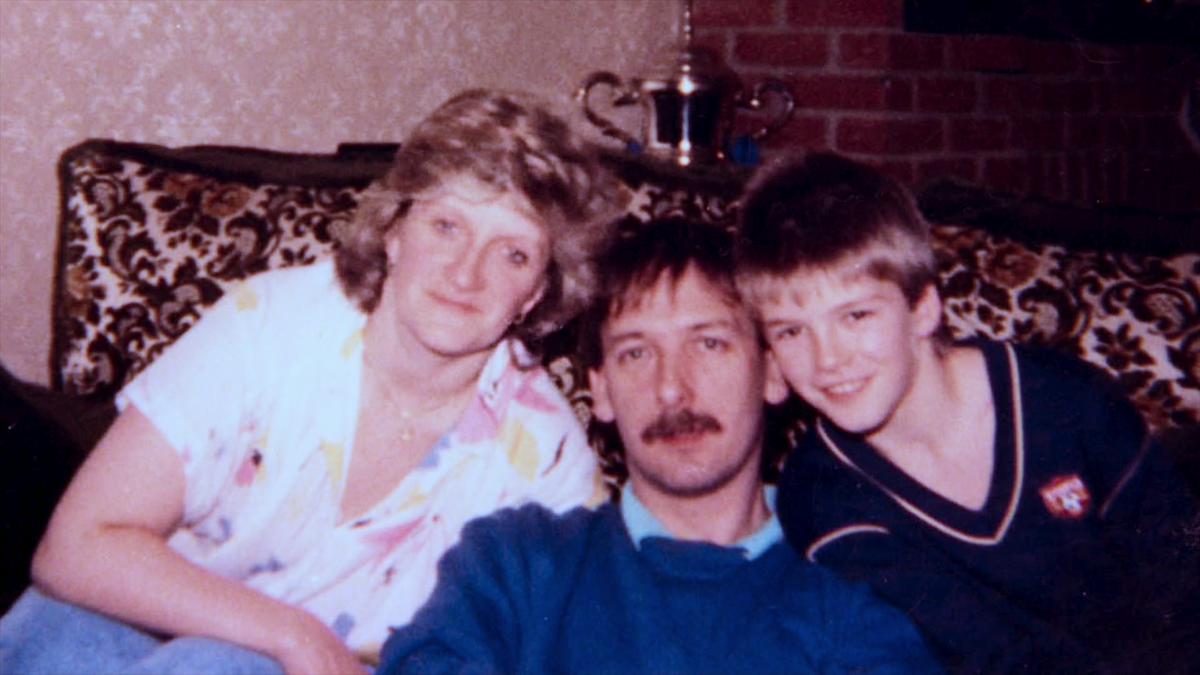
Beckham: I think one of the most emotional parts was hearing my mom and dad’s perspective in their way about my life –– not just about my career, because I know that they’re proud of me about my career –– but when I hear them talk about my kids, when I hear them talk about, you know, what we’ve achieved as a family, that was quite an emotional moment. You know, I get to see people talking about me in such an amazing way, whether it’s friends, family, ex-teammates, you know, having my family there, my kids, my wife, my mum and dad. They’ve all been part of this journey. So, to hear them talk about it from their side and their point of view is quite amazing. I didn’t want to make this documentary for me. I wanted to make it for my family, for my kids, for the grandkids, for my mom and dad to look back on it and have them have something to cherish, because it has been a journey. A lot of people told me to make it, and I got convinced in the end, “Yes, it’s the right thing to do.” But, it was for them.
Smith: There are so many appealing angles to this series, whether you want to dive into the historical moments it examines in English football, immerse yourself in ’90s and early 2000s nostalgia, or examine the unique intersection it presents between sports and celebrity. Regardless of the draw, it’s an undeniable reminder that David’s legacy looms so far beyond that of a sports figure. He’s remained at the top of our pop culture subconscious since he first came on the pitch at 17 years old, which is now over 30 years ago. That enduring relevance continues to fascinate me and so many others who have found that their reaction to the name “David Beckham” has not waned over the years, but rather, evolved into something larger than life. Perhaps that’s why BECKHAM affected me so deeply –– it was a peek behind a curtain that I didn’t necessarily think we’d ever get, and with it, we got to meet someone entirely new, and entirely remarkable.
BECKHAM is streaming now on Netflix. This episode was produced by Isabel Aurichio and Maddie Saaf and engineered by David Corwin. Special thanks to David Beckham and Fisher Stevens for their participation.
Subscribe, rate, and review Skip Intro wherever you’ve been listening.
